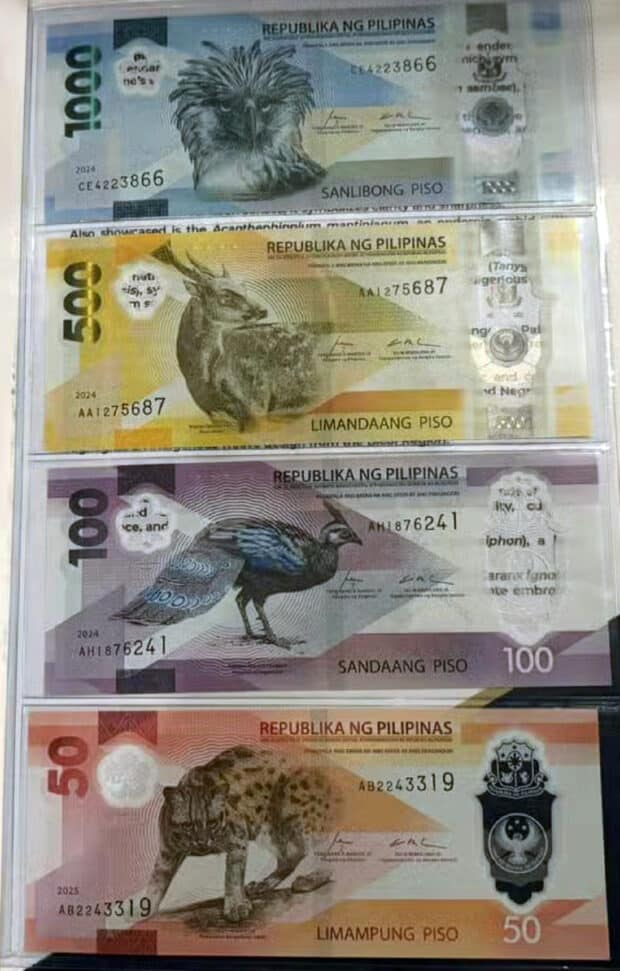BSP unveils new polymer banknote series

MANILA, Philippines — The Philippines’ first polymer banknote series was presented to President Ferdinand Marcos Jr. by the Bangko Sentral ng Pilipinas in a ceremony in Malacañang on Thursday.
The new designs of P50, P100, and P500 bills were released following the launch of the P1,000 polymer banknote into circulation in 2022.
READ: BSP: New P1,000 bill worth only P1,000
The P500 note features the Visayan spotted deer, symbolizing clarity and sharpness, while the P100 note showcases the Palawan peacock-pheasant, which reflects Filipinos’ grace even in challenging times.
Meanwhile, the P50 note features the Visayan leopard cat, which symbolizes independence and agility.
Article continues after this advertisement
The new banknotes will be in circulation by December 23 in the Greater Manila area only and in limited quantities. It will be available across the country by January 2025.
Article continues after this advertisement
Speaking at the unveiling ceremony, Marcos called the banknotes series a “groundbreaking step that embodies the strength, ingenuity, and forward momentum of our nation.”
“The introduction of the first Philippine polymer banknote series reflects the progress we are making as a Bagong Pilipinas—practical, innovative, and deeply meaningful,” he added.
Polymer banknotes can last up to seven and a half years, which is five times longer than their paper counterparts.
With that, Marcos said that the Philippines could save money, cut down waste, and make a meaningful contribution to protecting the environment.
The president noted that the adoption of polymers will mitigate currency counterfeiting, which has always been a problem for economies around the world.
“By upgrading our currency, we are making sure that every hard-earned peso stays safe, whether it is saved, whether it is spent, or whether it is invested,” Marcos said.